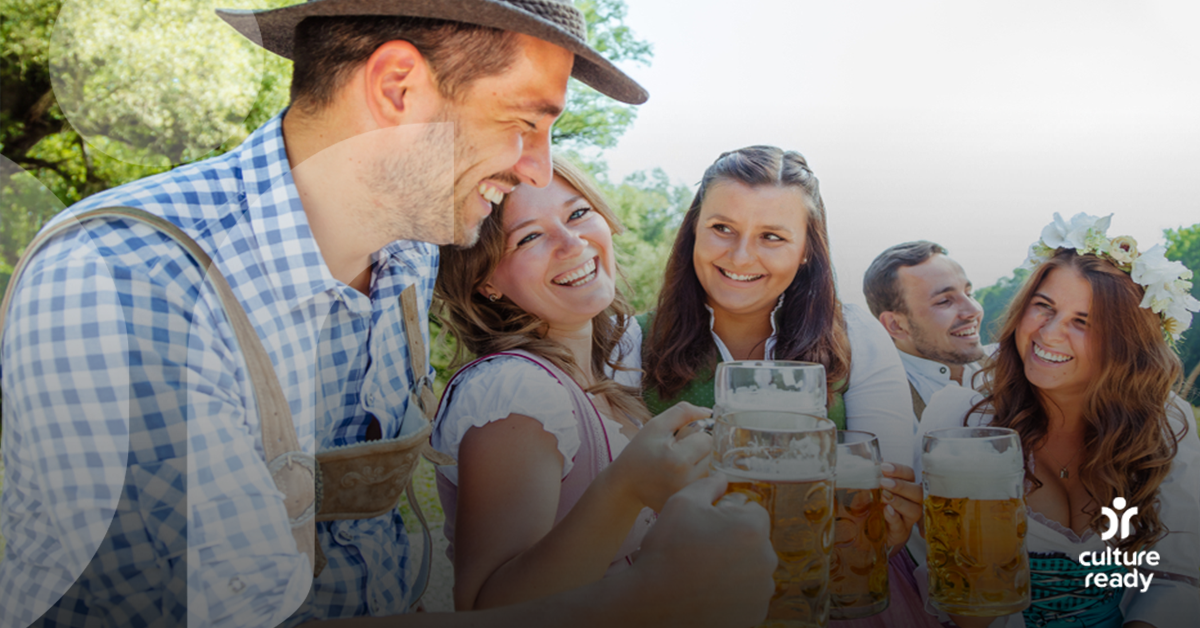Oktoberfest: The Largest Beer Festival in the World
It might come as a surprise to some of the millions of Oktoberfest attendees that the German festival’s origins had nothing to do with beer. The first Oktoberfest was held on October 12, 1810 to celebrate the wedding of Crown Prince Ludwig of Bavaria to Princess Therese of Saxe-Hildburghausen.
The citizens of Munich were invited to attend the festivities held on the fields in front of the city gates. The fields were named Theresienwiese (“Theresa's fields”) in honor of the Crown Princess. One of the events honoring the couple was a horse race, which became the centerpiece of the celebration.
The festival was such a success that the decision was made to repeat it the following year. As the celebration evolved, organizers added agricultural demonstrations, carnival rides, and food and beer stands. In 1819, the City of Munich decided the booming annual festival should continue into perpetuity.
By the late 1800s, planners moved the start of Oktoberfest to the end of September because of the milder temperatures. Beer tents and halls replaced the earlier beer stands.
Today, the 16 to 18-day folk festival still takes place at the location where it began in 1810 and revolves around Bavarian food, history, and culture. The mayor kicks off the festivities by tapping a ceremonial keg of beer and declaring “O’zapft is,” which fittingly means “It’s tapped!”
Attendees enjoy sauerkraut and traditional German sausages like bratwurst and knockwurst served with Dijon or honey mustard. Other popular Oktoberfest foods include Wiener schnitzel, a thinly breaded veal cutlet, roast chicken, roasted almonds, and pretzels. There are also live bands that play traditional Bavarian music
Munich’s Oktoberfest is now the largest beer festival in the world. Every year more than six million people visit the city to partake in the event, consuming more than seven million liters of beer.
Tents on the festival grounds serve beer from six local Bavarian breweries: Augustiner, Hacker Pschorr, Hofbräu, Löwenbräu, Paulaner, and Spaten. These beers must adhere to Germany’s strict beer purity law, “Reinheitsgebot.” This set of rules determines that there can only be four ingredients in beer: malt, yeast, hops, and water. Most of the options available are light, lager-style brews.
During Oktoberfest, it’s common to see people dressed in traditional clothing. Men wear lederhosen and women dress in the traditional dirndl, which began as a classic fashion for peasant and working women.
Due to the coronavirus pandemic, the 2020 and 2021 Oktoberfests were canceled. The 2022 festival is scheduled for September 17th to October 3rd.
Although Munich’s Oktoberfest is the most well-known, cities across Europe and the United States host local versions of the celebration.
Learn More:
Oktoberfest's Beer-Soaked History, Explained
How Oktoberfest Became The World's Biggest Beer Festival
What Exactly is Oktoberfest?
